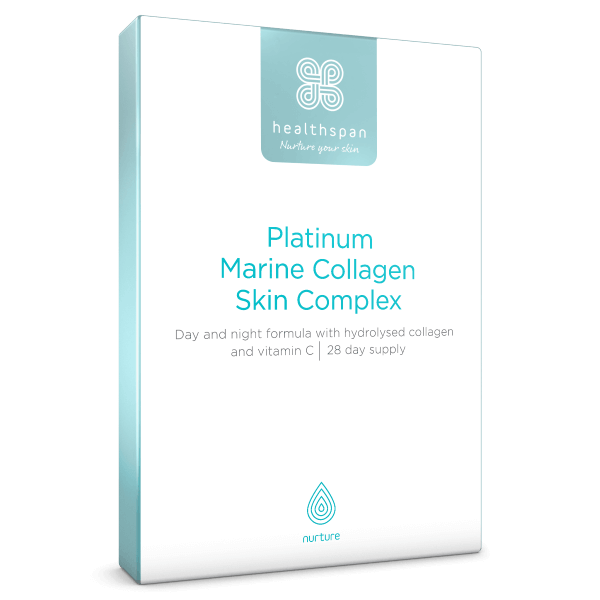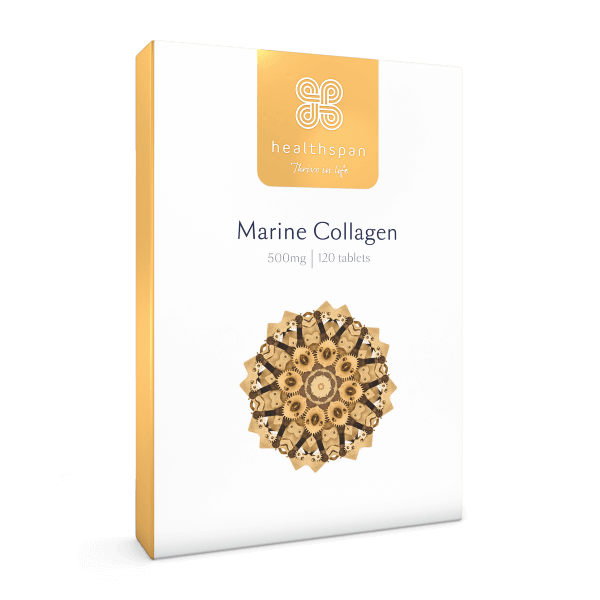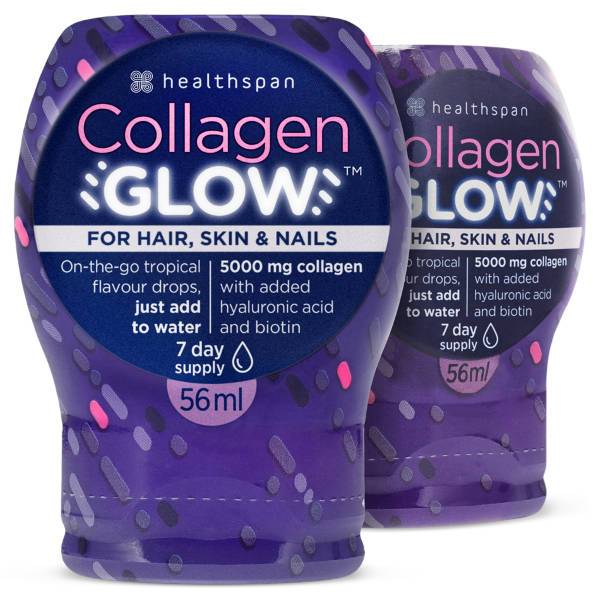Julie Brackenbury, Aesthetic Nurse Practitioner, explains everything you need to know about collagen – and why it's important for your skin's radiance, elasticity and smoothness.
What is collagen?
Collagen is the most abundant protein in your body – and it makes up an incredible 70-80% of the skin, giving it strength, elasticity and a healthy, youthful appearance.1
Types of collagen
There are, however, lots of different collagen types.2 Scientists have uncovered at least 28 – but types I, II and III make up 80 to 90% of the collagen in your body.
- Type I – used to provide structure to your skin, tendons, ligaments, and bones.
- Type II – found in elastic cartilage, which provides joint support.
- Type III – found in muscles, arteries, and organs.
Collagen benefits
Collagen is one of the most important support structures found naturally in our skin, helping to maintain elasticity and suppleness.
However, as we age, our cells naturally produce less collagen, leading to dry skin and the loss of elastic tissue, as well as the formation of fine line and wrinkles.
The most significant decrease in collagen production begins during menopause. From the age of around 45, our oestrogen levels fall sharply; and since oestrogen stimulates collagen production, we tend to experience drier skin, with more lines and wrinkles, less firmness, and a loss of elasticity.
Foods high in collagen come from animals; namely oily fish (ideally eaten twice a week), bone broth, and chicken (although largely in the parts of the chicken that are not normally in the West).
Unless you are regularly consuming collagen-rich foods, it is easier to include collagen supplements in your diet.
Do collagen supplements work?
There is research to suggest that taking a collagen supplement can stimulate your body's ability to produce collagen.3
In a study published in the International Journal of Molecular Sciences, it was found that taking collagen supplements orally increased the levels of amino acids in the body, which are needed for the body to produce more collagen.4
Another study found that women who supplemented with 2.5-5g of collagen over eight weeks reported improved skin hydration and elasticity compared with those using a placebo.5
With consistent use, collagen supplements may start to work within a week or two – although it may take longer for some people.

Platinum Marine Collagen Skin Complex
Premium day and night beauty supplement to support your skin's health from within
- Hydrolysed marine collagen to help slow signs of ageing
- Encourages healthier, more radiant-looking skin
- Selenium and zinc maintain healthy hair; vitamin C protects against environmental damage
Best collagen supplements
When choosing a collagen supplement for your skin, look for:
- Marine collagen, a pure form of hypoallergenic protein produced from the skin of fish. It is rich in type I collagen, which helps to minimise fine lines and wrinkles as well as improve skin elasticity and hydration. Type I collagen is also good for strengthening your nails and helping you grow stronger, thicker hair.
- In addition, ensure it is hydrolysed collagen. This means it is in a form that is already broken down, making it easier for the body to disgest and absorb.
- Added vitamin C, which is crucial to the process of synthesising amino acids into collagen and supporting collagen formation.

Marine Collagen
Support for your skin, bones and joints
- High levels of hydrolysed marine collagen
- Low molecular weight to aid absorption
- Added vitamin C to support collagen formation
Collagen saboteurs
It's also important to look after our existing collagen by avoiding the lifestyle factors that we know have a detrimental effect.
Sugar and refined carbs
Collagen production can be significantly slowed if your sugar and refined carbs intake is high; this is because sugar molecules attach to collagen proteins and interfere with collagen's ability to repair itself.6 This can lead to hardening and fragmentation of collagen.
Smoking
Smoking reduces collagen production; in one study, the synthesis of type I collagen was 18% lower in smokers versus non-smokers, while the production of type III collagen was 22% lower.7
It is also known that nicotine restricts the blood vessels, compromising the delivery of oxygen and nutrients to the skin, which can lead to premature ageing.
A study carried out on twins found that those who smoked had more wrinkles, lines, and crow's feet than non-smokers.8
Stress and poor sleep
Stress has been linked to decreased collagen production9 and also the breakdown of existing collagen and hyaluronic acid.10 Since poor sleep increases the amount of stress hormones, long-term sleep problems are likely to have an effect on the skin.
UV damage
There is a proven link between UV damage and loss of collagen. One study that exposed collagen to UV light found it led to significant degradation.11 UVA rays are present all year round, so ensure you protect your skin during the winter as well as the summer months.
Whether it's a collagen face cream or a collagen serum, skin care containing collagen won't make a difference to skin because the collagen molecule is too large to be absorbed into skin's deeper layers.
Instead, look for skincare products containing vitamin C or plant oestrogens, which work to help skin boost its own collagen production.
Plant hormones such as soy isoflavones can provide a useful oestrogen boost when taken as supplements and applied via isoflavone-enriched skincare products.

Collagen GLOW
Tasty tropical collagen drink
- 5000mg type I and type III marine collagen
- Give your hair, skin & nails a beauty boost
- Simply squeeze into water, stir and enjoy!







